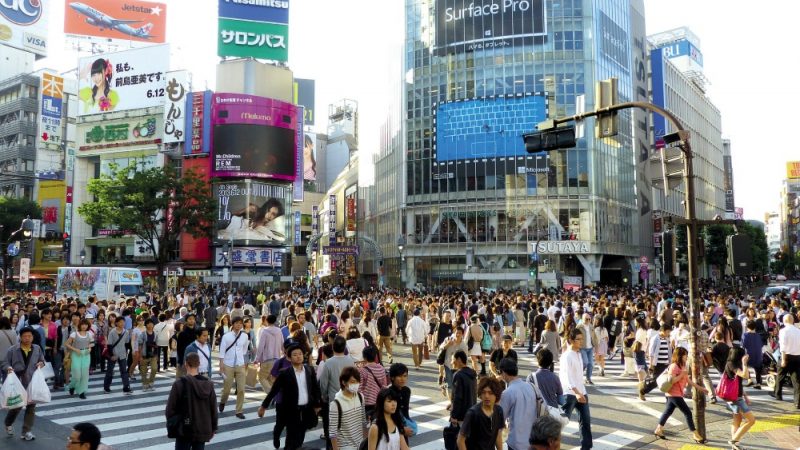Japan : Economy grows faster than expected, BOJ’s Kuroda warns of risks

TOKYO : Japan’s economic growth handily beat expectations in the July-September period, expanding for a third straight quarter as exports recovered, but weak domestic activity cast doubt on hopes for a sustainable economic recovery.
Government data issued on Monday underscored a potentially fragile export-reliant economic recovery just as Republican Donald Trump’s shock victory in the U.S. presidential election added to uncertainty over the global economic outlook.
The world’s third-largest economy expanded by an annualized 2.2 percent in the third quarter, faster than the 0.9 percent increase markets had expected, following a 0.7 percent increase in April-June, Cabinet Office data showed.
Bank of Japan Governor Haruhiko Kuroda maintained his optimistic view of the economy, saying it was on track for a moderate expansion as exports and output rebounded thanks to an expected improvement in the global economy.
But he acknowledged that private consumption was “somewhat lacking momentum” and making some companies hesitant to raise the prices of their goods and services – potentially delaying achievement of the central bank’s 2 percent inflation target.
“Risks to both economic activity and prices are skewed to the downside,” Kuroda told business leaders on Monday in the central Japan city of Nagoya, stressing his resolve to ease again if the economy loses the momentum to hit his price goal.
Monday’s data highlighted the uneven nature of Japan’s recovery.
External demand – or exports minus imports – added 0.5 percentage point to gross domestic product (GDP). It was the biggest contribution since April-June 2014, but was due in part to falling imports caused by yen gains and oil price falls.
Exports grew 2.0 percent, the fastest gain in a year, but the increase was driven by potentially one-off factors such as a boost in shipments of smartphone parts.
Private consumption, which accounts for roughly 60 percent of GDP, rose just 0.1 percent, as bad weather kept consumers from shopping. That added to concerns the benefits of Prime Minister Shinzo Abe’s “Abenomics” stimulus drive are yet to spread to households, as seen in tepid annual wage rises.
Capital expenditure, a key component of GDP, was flat following a 0.1 percent decline in the second quarter, likely reflecting worries about the global outlook.
“Exports recovered, but private consumption and capital expenditure are weak. The economy isn’t as strong as the 2.2 percent (headline figure) makes it seem,” said Hidenobu Tokuda, senior economist at Mizuho Research Institute.
“There are risks from China and Trump’s trade policies. We need to continue to pay attention to downside risks.”
Kuroda said next year’s wage negotiations between companies and labor unions were crucial to whether Japan would hit 2 percent inflation, calling on firms in Nagoya – home to auto giant Toyota Motor Corp (7203.T) – to help boost wages.
The BOJ governor said the bank was watching yen moves carefully as they have a “big impact” on the economy and prices.
“It’s desirable for currencies to move stably reflecting economic and financial fundamentals,” he said, noting this view was shared in other major economies.
The dollar sank as low as 101.19 yen last Wednesday as Trump’s victory boosted investor appetite for the safe-haven yen, but the prospect of Trump’s spending being inflationary has seen the dollar rebound to around four-month highs since then.
This recovery offered some respite to Japanese policymakers worried about the hit a stronger yen could inflict on the export-reliant economy.





